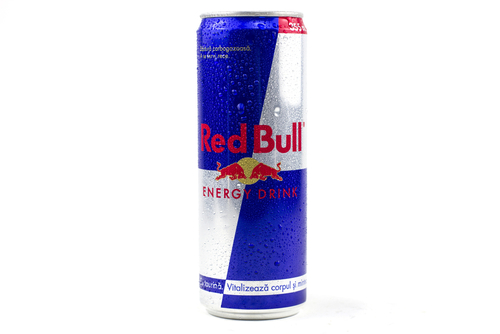Short answer
Red Bull is loaded with sugar and caffeine. Though some vitamins are found inside the small can of energy, the negative short- and long-term side effects outweigh the short-term benefits. Never consume Red bull with Alcohol or any medication that depresses the central nervous system (CNS).
Recommended Alternative
Long answer
Red Bull is an energy drink created in Austria. It was formulated with ingredients found in a similar drink and modified to fit the Westerners’ palate. The carbonated drink contains a little more than twice of the amount of caffeine in one Coca-Cola classic and contains high levels of sugar. The marketers’ for Red Bull lean on the healthy B vitamins and naturally occurring Taurine to claim many “health benefits”.
Whenever large amounts of sugar and caffeine are combined, there will certainly be a “high”—and a low. However, both ingredients are unhealthy when consumed excessively.
In the sugar-free versions of the product, the sugar is replaced with the far more dangerous artificial sweetener, Aspartame.
Taurine is a natural antioxidant created in the human body. Some research has concluded the combination of Taurine and caffeine working together provide the “buzz”. Additional research has determined that consuming supplemental Taurine can assist in combatting oxidative stress. The body processes free radicals on a regular basis through normal digestion, as well as, in response to pollutions and toxins. Oxidative stress occurs when the body has more free radicals than it is able to repair. Oxidative stress is prevented through the consumption of antioxidants, which neutralize free radicals. Though antioxidants are available in supplemental form, the best ones are found in organic food sources such as berries, tomatoes, kale, nuts, seeds, green tea, and much more. In research studies, Taurine is generally noted to be a beneficial or neutral substance, but there is no research to support long-term usage in heavy amounts. In 2014, Red Bull removed one of their main advertised ingredients “Glucuronolactone.” It is a chemical naturally produced in the liver aiding in the detoxification process. It was touted to be an all-natural detox agent, stimulant, mild anti-depressant that can increase memory, concentration, and assist in metabolism. It sounds like a miracle supplement! Unfortunately, there is very little research found to back up the claim. Ironically there is little known about the supplement form of the chemical at all, except for a couple of urban legends. Curiosity remains regarding why it was mysteriously removed from Red Bull products.
Red Bull is extremely dangerous when combined with any form of alcohol or CNS depressants. This combination can result in a multitude of health problems, including death in some unfortunate situations. There are two sources of danger with this mixture. The first comes from the Red Bull masking one’s alcohol consumption limits. People are able to drink well past when they would have normally passed out from drinking, creating a ripe environment for alcohol poisoning. It can also be dangerous due to the sudden changes in heart rate occurring between the stimulant and depressant.
Red Bull is relatively safe for healthy individuals to consume in moderation. The caffeine and sugar content are unhealthy but relatively justifiable for the occasional pick-me-up. If you are looking for something to provide the Vitamin B and antioxidant benefits, try taking a living organic multi-vitamin as a safe alternative.
Possible short-term side effects
- insomnia
- anxiety
- shakiness
- heartburn
- increased heart rate
Possible long-term side effects
- weight gain
- increased blood pressure
- tooth decay
- dependency
- circulatory strain
Ingredients to be aware of

Benefits
- boosts energy
- may improve digestion
- may increase hdl (good cholesterol)
Healthier alternatives
- ginseng
- apples
- kombucha tea
- coconut water
- coffee
Our Wellness Pick (what is this?)
CLEAN Cause Yerba Mate
- Zero calorie drink
- No added sugar
- Keto-friendly
- 160mg natural caffeine
- Organic energy alternative
 Approved by
Approved by 














